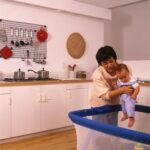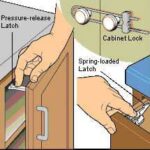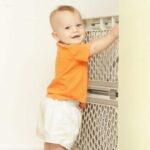As you have all the other rooms in the house, baby-proof the nursery by studying it from an infant’s point of view and implement the safety precautions already detailed in this section of HomeTips.
Then you can turn your attention to the gear you will need upon baby’s arrival. For information on buying a safe crib, changing table, and other safe baby gear, please see Buying Safe Baby Gear.
Keep the crib free and clear of long ribbons, cords, hanging toys, and mobiles. Industry standards recommend that all crib or playpen toys have strings no longer than 12 inches, as well as a label that cautions against use when a baby can push up on hands and knees.
Childproofing a Toddler Room
When your baby stands up and takes off one day—look out! With a toddler’s mobility, the world is soon at his or her fingertips.
Because toddlers spend many hours in their rooms playing, stacking, climbing, chattering, learning, laughing, and sleeping, you’ll want to make that room is as safe as possible.
Following all the precautions mentioned in this section’s other articles won’t prevent every accident, but it will reduce the chances of serious harm. In addition, consider these measures:
Safe Toddler Beds
If your child stands taller than 35 inches or can climb out of the crib, even with its gate up, it’s time to graduate to a standard bed.
The bed is often safest in a corner, surrounded by walls on two sides. If it stands more than a foot off the floor, a low guard rail along the open side will help prevent falls. Make sure that the space between the rail and bed frame will not allow a small child to slip or wiggle through. Bunkbeds are not recommended.
A simpler and often safer option is a Japanese futon (a long, folding cushion) or a firm mattress laid on a carpeted floor.
For toddlers, the best bed frames have very simple headboards and footboards free of decorative cutouts or protrusions that might catch or poke.
Electric blankets are best saved for adult use.
Safe Storage
Save low drawers and shelves for toys and bulky items. Use upper drawers and shelves that are out of your toddler’s reach for potentially messy items such as art supplies. Store fragile baby treasures and all dangerous articles in high, safety-latched cupboards in a different room.
If you’re choosing a traditional toy chest, look for a spring-loaded support that prevents the lid from slamming shut, as well as construction that prevents the hinge sides from pinching little fingers. The chest should also have ventilation holes in the base in the event your toddler empties it out and manages to crawl in. Safer choices for toy storage are coverless plastic tubs or bins or low, sturdy shelves. Cardboard boxes are good, too, and are easily replaced.
Child-Safe Chairs & Tables
Choose stools, chairs, and tables that are quite stable because your child will climb on them, invent many new uses for them, and maybe even stack them up.
When buying new furniture, look for stability, durable materials, softness, rounded edges, and adjustability.
A Clean, Safe Closet
Young children sometimes like to hide in closets. Be sure your child can’t get trapped inside accidentally. Be sure that any closet hooks, including ones on the inside or outside of the door, are placed well above a child’s eye level. Periodically check the closet for small stray items. Do not keep any of baby’s clothes in garment bags or dry cleaner bags.
TIP: Provide a nightlight so both you and your child can navigate the room in the dark.
MORE ABOUT CHILDPROOFING:
Buying Safe Baby & Toddler Toys
Childproofing a Bathroom
Childproofing Decks & Porches
Childproofing Home Office or Activity Areas
Childproofing Room-by-Room
Childproofing Stairs
Childproofing Swimming Pools
Child-Safe Fences & Gates
Child Safety in Garage & Shop
General Childproofing Techniques



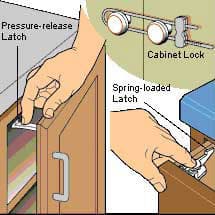
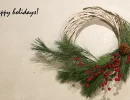
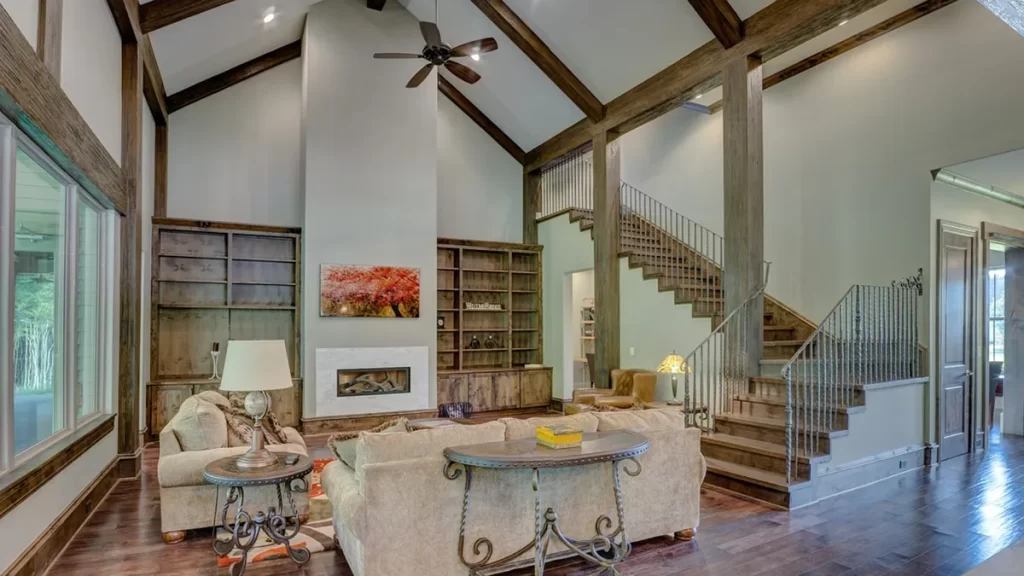
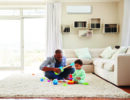
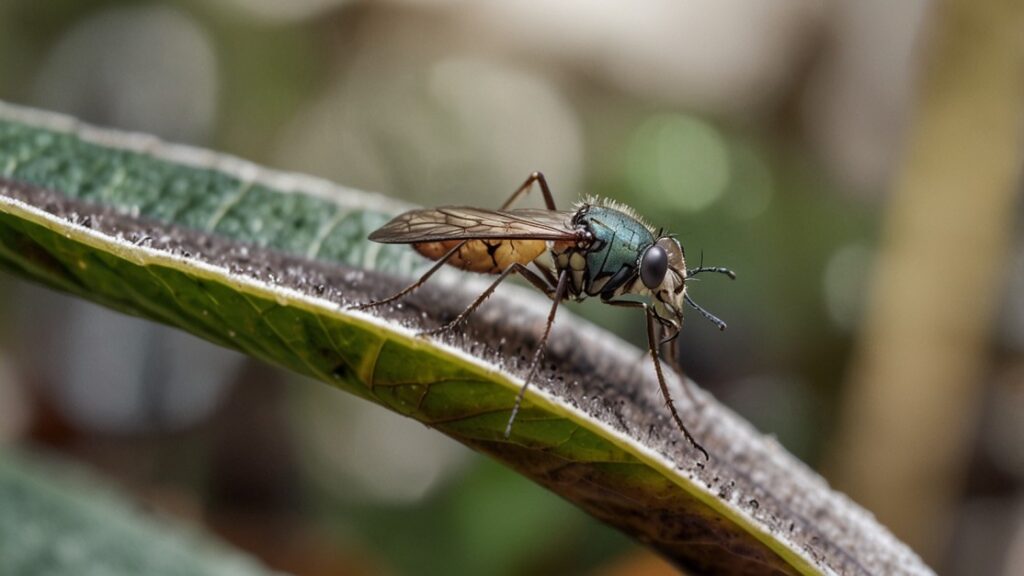
 Don Vandervort writes or edits every article at HomeTips. Don has:
Don Vandervort writes or edits every article at HomeTips. Don has:
